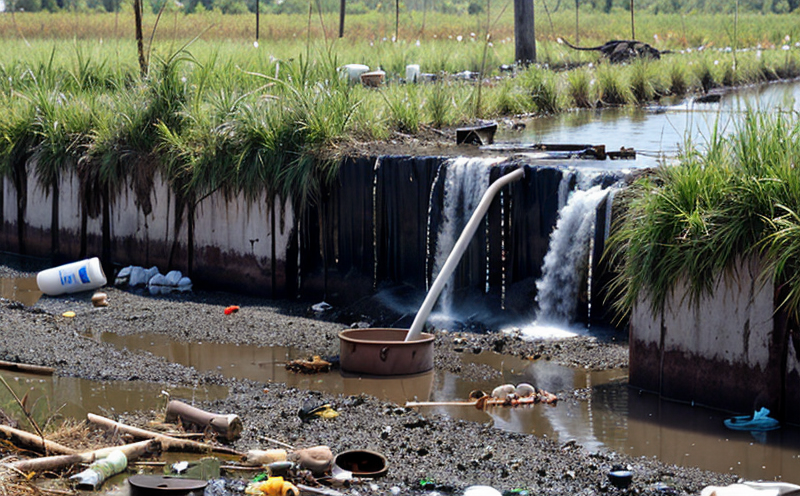Tea Pollutant Testing
In the modern era of environmental consciousness and public health awareness, the quality assurance process in the tea industry has become increasingly critical. Tea pollution testing is essential to ensure that every cup of tea consumed meets stringent safety standards. This service focuses on identifying contaminants such as heavy metals, pesticides, and other harmful substances within tea leaves or brewed tea. By adhering to international standards like ISO 6527-1:2019, this service guarantees accurate and reliable results.
The testing process begins with a detailed sampling protocol that ensures the integrity of the samples taken from different regions or batches. This is crucial because variations in soil composition, climate conditions, and processing methods can significantly influence the presence of pollutants in tea leaves. Once the samples are collected, they undergo rigorous chemical analysis using advanced analytical techniques such as Inductively Coupled Plasma Mass Spectrometry (ICP-MS) for heavy metals like lead, mercury, cadmium, etc., and Gas Chromatography-Mass Spectrometry (GC-MS) for pesticide residues.
Understanding the scope of this service requires a brief overview of its relevance in the broader chemical testing landscape. The tea industry faces constant scrutiny from regulatory bodies worldwide due to potential health risks associated with contaminated teas. This service plays a pivotal role in mitigating these risks by providing transparent and verifiable data on the safety profile of tea products.
Compliance officers, quality managers, and R&D engineers responsible for ensuring product safety and maintaining brand reputation will find this testing invaluable. Additionally, procurement professionals can leverage these test results to make informed decisions about sourcing high-quality raw materials from reliable suppliers. For instance, a supplier who consistently passes rigorous pollutant tests is more likely to be trusted over those who fail such stringent evaluations.
- Benefits: Ensures compliance with international standards, enhances brand reputation, protects consumer health, supports sustainable practices.
- Why Choose This Test: Advanced analytical methods, accurate results, regulatory compliance, enhanced product quality.
Why It Matters
The importance of tea pollutant testing cannot be overstated in today’s climate-conscious world. Contaminants like heavy metals and pesticides not only pose direct health threats but also affect the overall taste and aroma of the tea, impacting consumer satisfaction. Moreover, these pollutants can lead to significant economic losses for producers if they are detected during third-party inspections or customer complaints.
From a broader perspective, ensuring clean tea products contributes positively towards environmental sustainability initiatives. By reducing the intake of contaminated tea, consumers contribute to lower levels of toxic substances in their bodies, which benefits public health globally. Furthermore, responsible sourcing practices encouraged by this service help promote fair trade and sustainable agricultural methods.
The global demand for organic and ethically produced teas has grown exponentially over recent years. Consumers increasingly prefer brands committed to environmental responsibility and ethical labor practices. Reliable pollutant testing results enable companies to maintain certifications such as USDA Organic, EU Organic, or Fairtrade, which are highly valued by eco-conscious consumers.
- Benefits: Consumer trust, enhanced brand reputation, reduced risk of product recalls, compliance with stringent regulations.
- Why Choose This Test: Advanced technology ensures precision and accuracy, leading to credible test results; comprehensive testing covers various types of pollutants; strict adherence to international standards guarantees reliability.





